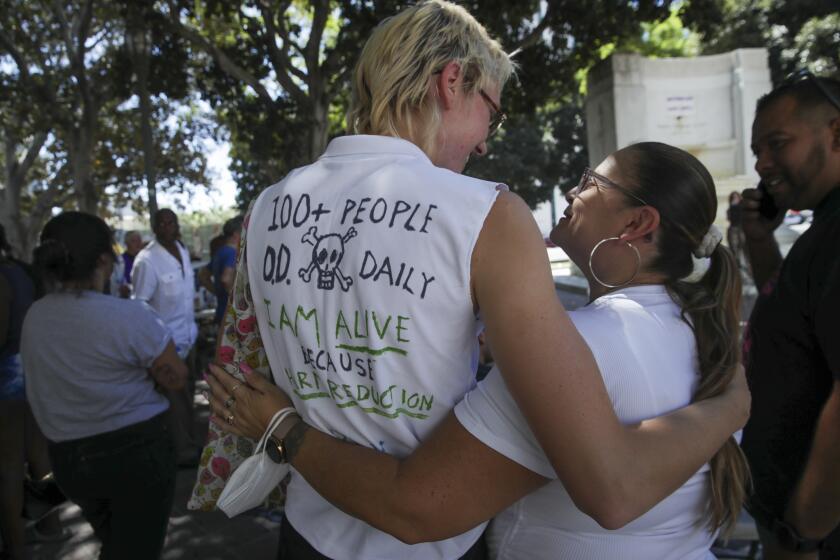Owens Valley Proposal Is Halted
Saying colleagues overstepped their authority, the mayor and city attorney have blocked a proposal by two Los Angeles City Council members to put about 320,000 acres of city-owned land in the Owens Valley under an environmental easement.
Council President Alex Padilla and Councilman Tony Cardenas proposed negotiations with the state over an easement that would allow the city Department of Water and Power to continue to use the land, but would ban commercial or residential development.
“These extraordinary lands should be preserved for future generations of children to experience for years to come,” the council members wrote to the head of the State Resources Agency, proposing the easement.
However, Mayor James K. Hahn, City Atty. Rocky Delgadillo and DWP Commission Chairman Dominick Rubalcava wrote that the City Charter gives the Water and Power Commission, not council members, the power to negotiate the use of Owens Valley lands.
“Accordingly, we respectfully request that the negotiation request be withdrawn,” they wrote in a letter dated June 15 but made public Monday.
The DWP bought the land in Inyo and Mono counties nearly a century ago to provide water to the growing city of Los Angeles and has left much of the acreage as ranchland and farmland.
Cardenas, who chairs the council committee overseeing DWP issues, said Monday that he saw the proposal as a way to preserve the land as open space while generating revenue because the state would pay for the easements.
“To me, it sounds like we could have the best of both worlds,” Cardenas said.
However, Rubalcava said the proposal is a bad idea because the city would be ceding some control over lands that are critical resources.
“The DWP has maintained those lands in a pristine fashion for nearly 100 years,” Rubalcava said. “People are proposing a solution to a problem where no problem exists.”
Any environmental easement could lead to more restrictions on how people use the land, Rubalcava said, adding that environmentalists might push to remove the fisheries or ranches that are now there or to limit access to trails and fishing streams.
Cardenas said he had not meant to enter into negotiations, merely to urge the state to explore the idea with the city.
More to Read
Start your day right
Sign up for Essential California for news, features and recommendations from the L.A. Times and beyond in your inbox six days a week.
You may occasionally receive promotional content from the Los Angeles Times.







